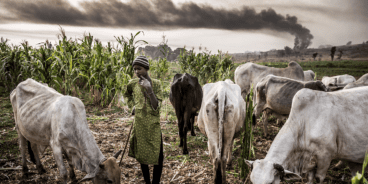
Atrocity Alert No. 5: Iraq, Democratic Republic of the Congo and Nigeria
Atrocity Alert is a weekly publication by the Global Centre for the Responsibility to Protect highlighting and updating situations where populations are at risk of, or are enduring, mass atrocity crimes.
Iraq
On 17 May the Islamic State of Iraq and the Levant (ISIL) killed at least 77 people in three suicide bombings in Baghdad, Iraq. This follows several bombings by ISIL in the Iraqi capital last week, killing at least 100 people around mainly Shia areas of the city, making these the deadliest series of sectarian attacks this year. The attacks are intensifying tensions, including among rival Shia armed groups, putting civilians at a greater risk of mass atrocities.
Democratic Republic of the Congo (DRC)
Amidst reports of violent repression of opposition supporters, the constitutional court in the DRC ruled on 11 May that President Joseph Kabila may stay in office beyond the end of his term in December if the country is unable to hold elections this year. As political tensions in Kinshasa grow, armed groups in the eastern DRC continue to perpetrate atrocities against populations. Allegations have emerged that officers within the Congolese army aided and/or abetted in massacres committed by the Allied Democratic Forces and other armed groups in Beni, North Kivu.
Nigeria
On 17 May in Nigeria’s Sambisa Forest a vigilante group – the Civilian Joint Task Force – reportedly rescued one of the more than 200 girls kidnapped by Boko Haram from a school in Chibok more than two years ago. This was the first Chibok girl to be rescued, but hundreds of other children abducted by Boko Haram from schools in Chibok, Damasak and other areas remain missing and the government has been unable to liberate them. Last month UNICEF reported that one in five suicide bombers used by Boko Haram is a child, including girls abducted by the group. It is imperative that the government strengthen efforts to rescue remaining abductees.


